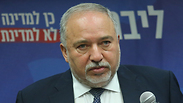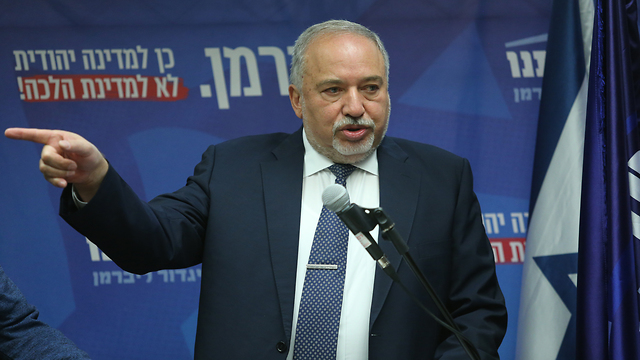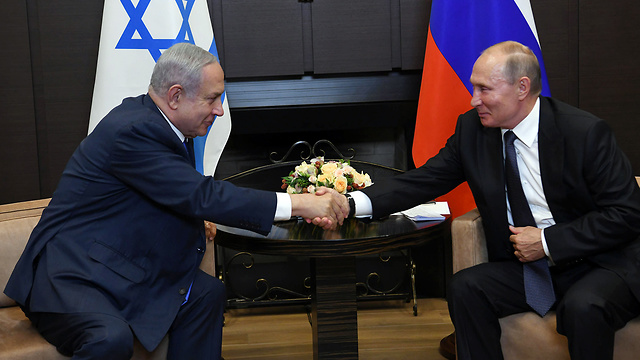If anyone is looking for pointers to help decide who to vote for if we do find ourselves at the ballot box again in March, they could start by taking a good look at a phrase uttered by Avigdor Liberman: "My word is my word."
It is worth seeing which of the candidates have lived up to this motto, and which have violated it.
Prime Minister Benjamin Netanyahu, for example, vowed to form a government with his natural partners - the right-wing and ultra-Orthodox parties.
He refused to cede this bloc at any stage - while simultaneously working to establish a unity government with the centrist Blue and White party.
Blue and White leader Benny Gantz, meanwhile, strove to put together a liberal unity government of which the ultra-Orthodox would be a part, but not within the rest of Netanyahu's bloc.
And despite the spin coming out of the prime minister's residence, Gantz was not the one who was forced to demand the premiership ahead of the other in a rotation plan with Netanyahu.
He refrained from making this demand even though his partners in Blue and White - Yair Lapid, Gabi Ashkenazi, and Moshe Ya'alon – supported his claim to the first term, in line with the wishes of their constituents who effectively voted to end Netanyahu's term in office.
But it is Liberman who above all has shown that there are politicians who stand by their word.
Those who listened to him speak last week could see that the principles he has outlined in recent months – no to a government dominated by the religious parties, core curriculum for the ultra-Orthodox schools, respect for the secular lifestyle - are principles he does not intend to trade away.
Significantly, from the moment he decided not to join a Netanyahu government after the last elections in September, Liberman may have in fact harmed his own chances for a role in a future Netanyahu government.
The current 21-day period in which to try to rescue the country from the prospect of a third round of elections will likely be a spin-laden period as each party seeks to preserve its base of support and seize votes from the others.
The Israeli political system has never experienced such a situation, but there is always a first time. Yet this time around we will all have a more refined view of our political leaders.
Don't buy the popular assumption that a third round of elections will fail to change the political landscape. Netanyahu's drawn-out legal adventure, which is hurtling to its final destination means voters could be presented with a situation in which they are asked to choose a prime ministerial candidate who will be sworn in on a stack of indictments.
Furthermore, the Israelis missiles this month fired at Iranian bases near Damascus placed the country into a direct and dangerous confrontation with the ayatollahs' regime in Tehran.
Netanyahu, who claimed in recent years that he had sat down with Russian President Vladimir Putin to redraw the map of the Middle East in such a way as to ensure Israel's security, leaves behind a dangerous reality that will demand future decision-makers to reboot the country's concept of defense.
Defense Minister Naftali Bennett's warning to Iranian leaders that they will face repercussions for their actions could prove to be extremely incendiary.
If Israel does go to a third election, it is vital for voters to really examine what the candidates say and not what they spin.





















